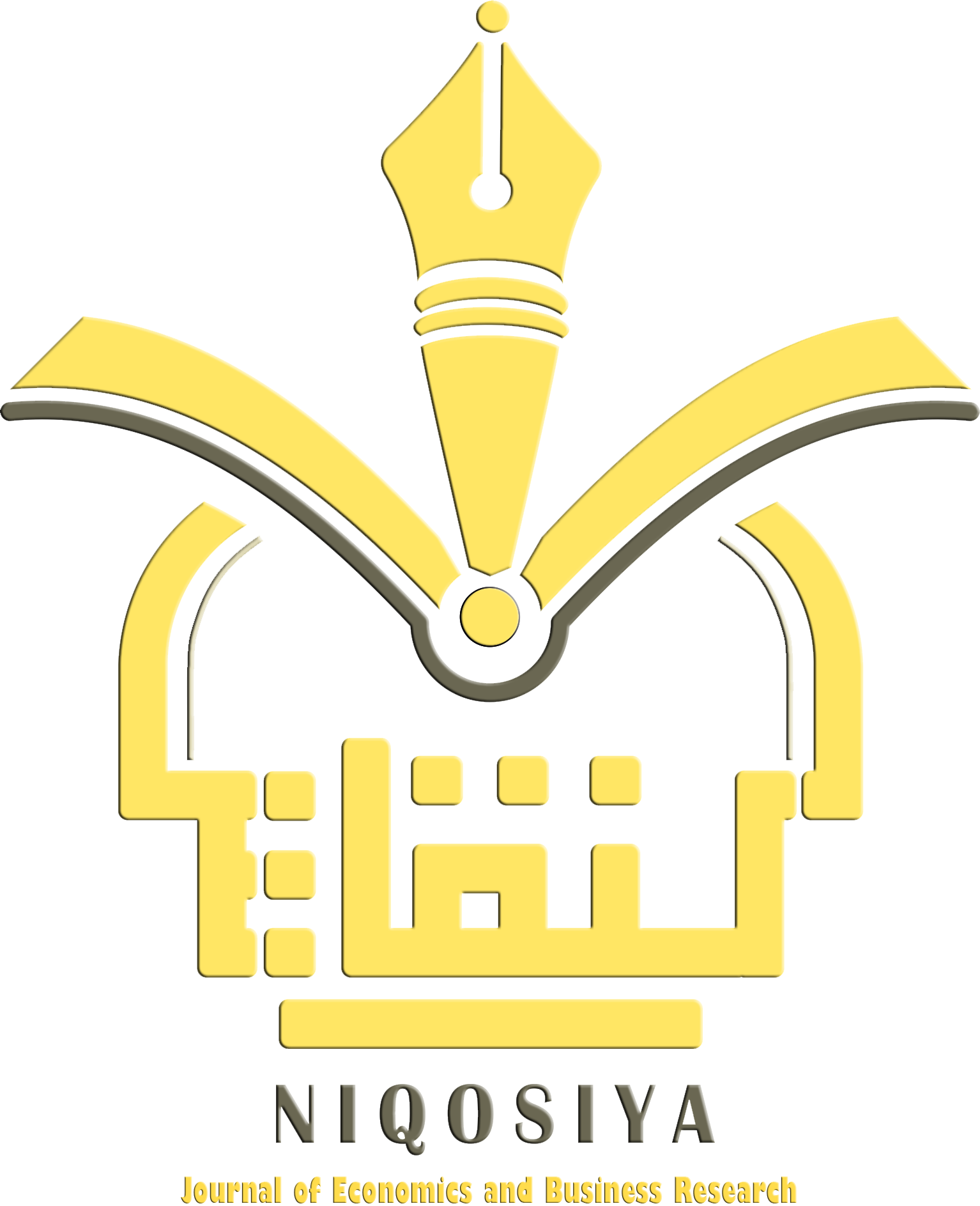Penerapan Etika Bisnis Islam Terhadap Kegiatan Produksi Pentol Corah dan Otak-Otak Assegaf Jaya Ponorogo
Abstract
Assegaf Jaya Ponorogo Business is a business engaged in the field of culinary that produces pentol corah and otak-otak typical of Madiun City. Deep Production activities need to pay attention to Islamic production ethics by fulfilling Islamic principles. According to Yusuf Qardhawi, principles in production Islamic is producing in the scope of halal, protection of natural resources, and pay attention to targets. But the facts on the ground are still business people that violates Islamic business ethics towards production activities, such as addition substances that are haram, and there are producers who use tiren meat so that will harm consumers. Consumer losses in the form of material loss, declining health, and loss of consumer trust and loyalty Decreased. The purpose of this study is to analyze the application of activities production of pentol corah and otak-otak in Assegaf Jaya Ponorogo, driving factors and constraints on the application of Islamic business ethics to pentol corah production activities and the brains of Assegaf Jaya Ponorogo, and the impact of implementing production activities pentol corah and otak-otak in Assegaf Jaya Ponorogo. Types of research used is field research using qualitative methods with a descriptive approach. Data collection techniques are carried out by tactics interviews, observations, and documentation. Data sources obtained in the study are: primary data and secondary data. The results of this study show that application of business ethics to the production activities of pentol corah and otak-otak Assegaf Jaya Ponorogo is producing in a halal scope, namely using materials halal standards, do not mix haram, maintain cleanliness and have have a halal certificate from MUI, protection of natural resources with no the existence of production waste that damages the environment, paying attention to targets in the form of the creation of individual self-sufficiency and people's self-sufficiency. Driving factors in the form of A workforce that works according to expertise, sufficient capital, and the use of materials halal standard. Obstacles in the form of scarcity of raw materials for making brains, namely: mackerel and replace it with swordfish. Impact of ethical implementation Islamic business on production activities is a positive impact that can be felt by business owners, labor, and consumers. While the negative impact is in the form of scarcity of raw materials for brain production that affects satisfaction
Downloads
References
Al- Qaradhawi, Y. (2022). Norma & Etika Ekonomi Islam. Gema Insani.
Chapra, M. U. C. (2000). Islam Dan Tantangan Ekonomi. Gema Insani.
Fahmi, I. (2014). Etika bisnis. Alfabeta.
Husna, U. husna. (2023, September 19). Wawancara [Komunikasi pribadi].
Hutagalung, S. S. H., & Hermawan, D. H. (2018). Membangun Inovasi Pemerintah Daerah. CV. Budi Utama.
Wawancara. (2023).
Kasanah, N. K., & As Sajad, M. H. A. S. (2022). Potensi, Regulasi, dan Problematika Sertifikasi Halal Grati. Journal of Economics, Law, and Humanities, Vol. 1(2).
Keputusan Menteri Agama RI No. 518 Tahun 2001 pasal 1 tentang Pedoman dan Tata Cara Pemeriksaan dan Penetapan Pangan Halal.
Kompas.com, D. O. P. (2022). Ditangkap karena Menjual Bakso Ayam Tiren Selama 7 Tahun, Pelaku Bilang “Senang Sekali...” https://yogyakarta.kompas.com/read/2022/01/24/184408978/ditangkap-karena-menjual-bakso-ayam-tiren-selama-7-tahun-pelaku-bilang?page=all
Maimunah, S. (2019). Pengaruh Kualitas Pelayanan, Persepsi Harga, Cita Rasa Terhadap Kepuasan Konsumen Dan Loyalitas Konsumen. . . Jurnal : IqtishaDequity, Vo. 1(2). 57-68.
Masruroh, B., & Rafikasari, E. F. (2022). Pengaruh Citra Merek, Kesadaran, Sertifikasi, dan Bahan Baku Halal terhadap Minat Beli Produk Halal: Studi pada Mahasiswa UIN Sayyid Ali Rahmatullah Tulungagung. Jurnal Ekonomi dan Bisnis Islam, Vol. 3(4), 868-884.
Muslimah, D. N., Suhendro, & Masitoh, E. (2020). Faktor-Faktor yang Mempengaruhi Struktur Modal pada Perusahaan Property dan Real Estate yang Terdaftar di BEI. Jurnal Ilmiah Universitas Batanghari Jambi, Vol. 20(1), 195–200.
Muslimin, M. I., & Huda, N. (2021). Produksi Menurut Yusuf Qardhawi (Studi Literatur Kitab Daurul Qiyam wal Akhlaq fil Iqtishadil Islami). Jurnal Ilmiah Ekonomi Islam, 7(3), 1294-1300.
Nursyamsiyah, I. N., & Nopianti, N. N. (2021). Pengaruh Etika Bisnis Islam Dan Kualitas Produk Terhadap Kepuasan Konsumen Pada Usaha Rofi Collection Ciamis. Jurnal Ekonomi Rabbani, Vol.1(1), 52-62.
Observasi. (2023).
Sampurno, W. M. S. (2016). Penerapan Etika Bisnis Islam dan Dampaknya Terhadap Kemajuan Bisnis Industri Rumah Tangga. rno, Journal of Islamic Economics Lariba, Vol. 2(No. 1), 13-18.
Silviyah, N. M. S. (2022). Pengaruh Etika Bisnis Islam Dalam Meningkatkan UMKM. Jurnal Pemikiran dan Penelitian Ekonomi Islam, Vol. 10(1), 24-32.
Sugiyono. (2019). Metode Penelitian Kuantitatif Kualitatif Dan R&D. Alfabeta.
Syahrial. (2020). Dampak Covid-19 Terhadap Tenaga Kerja Indonesia. Jurnal Ners Universitas Pahlawan, Vol. 4(2), 21–29.
TV One News.com, M. E. (2023). Diduga Keracunan Jadi Penyebab Balita di Ngawi Meninggal, Polisi Masih Uji Lab Sampel Es Krim dan jajanan Pentol. https://www.tvonenews.com/daerah/jatim/127998-diduga-keracunan-balita-di-ngawi-meninggal-tak-wajar
Undang-undang No. 32 Tahun 2009 Pasal 1 Ayat 9 tentang Perlindungan dan Pengelolaan Lingkungan Hidup.
Wardani, Y. M. W., & Ridlhwan, A. A. R. (2022). Penerapan Etika Bisnis Islam dalam Membangun Loyalitas Pelanggan Pada PT. Tanjung Abadi. JESI (Jurnal Ekonomi , Syariah, Vol. 12(No. 1), 37-52.
Wawancara, (2023).
Wawancara, (2023).
Yunia, N. Y. (2018). Implementasi Etika Bisnis Islam Dalam Menjalankan Usaha Kecil. Jurnal Aksioma Al-Musaqoh, Vo. 1(1), 72-92.
Copyright (c) 2023 Vita Listiani, Fitra Rizal

This work is licensed under a Creative Commons Attribution-NonCommercial 4.0 International License.














